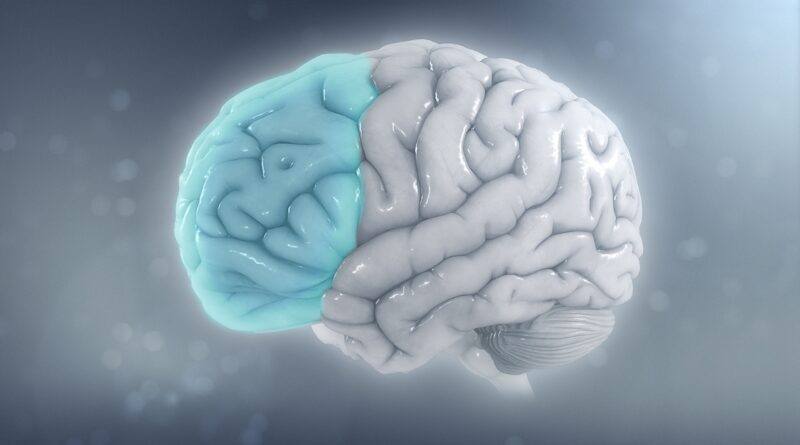Better Ways To Tackle The Most Upsetting ADHD Brain
PART 1
How to Deal with ADHD and Irritability: Why Everything Seems to Annoy You
Have you ever experienced the sensation that the world around you resembles a colossal cheese grater, with your nerves akin to a hapless block of cheddar being gradually torn apart? For those navigating the complexities of Attention Deficit Hyperactivity Disorder (ADHD), this sensation may resonate deeply. The link between ADHD and increased irritability is a frequently underestimated facet of navigating life with this neurodevelopmental condition. ADHD is often recognised for its effects on attention, focus, and hyperactivity, yet the emotional turbulence it brings is just as profound and poses considerable challenges for numerous individuals.
ADHD is a multifaceted condition impacting millions across the globe. The condition is marked by challenges in sustaining focus, regulating impulses, and handling hyperactive behaviours. ADHD and irritability share a complex relationship, as numerous individuals find themselves navigating a landscape marked by increased sensitivity to the annoyances and frustrations that punctuate their everyday experiences. The rise in irritability can take many forms, ranging from subtle grumpiness to explosive anger outbursts. Understanding and managing this symptom effectively becomes essential in navigating these emotional fluctuations.
For individuals navigating the complexities of ADHD, the sensation of persistent annoyance transcends mere inconvenience; it becomes a relentless presence that influences every facet of daily existence. Even the simplest tasks, casual social interactions, or minor setbacks can ignite a whirlwind of intense frustration and irritation. The surge in emotional reactivity can create tension in relationships, hinder professional performance, and profoundly diminish the overall quality of life.
Grasping the nuances of irritability is essential for navigating the challenges of ADHD with confidence and resilience. Understanding the link between ADHD and heightened irritability opens the door for individuals to cultivate effective strategies that enhance their emotional management and elevate their overall quality of life. In this exploration, we will uncover the intricate science that links these emotions and provide insightful strategies to effectively navigate the complexities they present.
Understanding the Connection Between ADHD and Irritability
Exploring the intricacies of the ADHD brain reveals fascinating insights into the heightened irritability often experienced by individuals with this condition. Understanding these neurological differences is key to grasping the unique challenges faced by those with ADHD. Recent studies reveal that individuals with ADHD exhibit distinct structural and functional variations in several brain regions, especially those linked to executive functions and emotional regulation.
The prefrontal cortex stands out as a pivotal region impacted by ADHD, significantly influencing essential executive functions. This area is integral to managing impulse control, regulating attention, and overseeing emotional responses, highlighting its importance in understanding the complexities of ADHD. For those navigating the challenges of ADHD, research suggests that certain brain regions may exhibit underactivity or diminished connectivity with their counterparts. This phenomenon can contribute to the difficulties experienced in various aspects of daily life.
Deficits in executive function play a crucial role in the heightened irritability often observed in individuals with ADHD. Individuals may find it challenging to navigate these deficits.
1. Eliminate distractions that do not contribute to your focus.
2. Mastering the art of task prioritisation and time management is essential for achieving success in today’s fast-paced world. By strategically organising your responsibilities, you can enhance productivity and ensure that your efforts yield the best results. Embrace techniques that allow you to allocate your time wisely, making every moment count in your quest for excellence.
3. Mastering the art of managing emotional reactions to frustration and setbacks is essential for personal growth and resilience. By honing this skill, individuals can navigate life’s challenges with grace and poise, transforming obstacles into opportunities for development.
4. Effortlessly transition your focus from one task to another.
When executive functions falter, the simplicity of daily life can transform into a source of mounting frustration, giving rise to a cascade of irritation and annoyance.
Emotional dysregulation stands out as a pivotal element contributing to irritability associated with ADHD. Individuals with ADHD often navigate a landscape of heightened emotions, finding it challenging to regulate their emotional responses. This may lead to:
· Sudden shifts in emotional states
· Struggling to regain composure after experiencing distress
· Exaggerating responses to trivial irritations
· Having trouble keeping your emotions in check when under pressure
The interplay between executive function challenges and emotional instability sets the stage for increased irritability in those living with ADHD. Grasping the intricate neurological foundations is essential for crafting impactful strategies aimed at managing irritability and enhancing overall emotional health.
Typical Causes of Irritability in ADHD Patients
People with ADHD frequently experience heightened sensitivity to a range of environmental and situational triggers that can lead to increased irritation. Identifying these prevalent triggers marks a crucial initial step towards crafting effective coping strategies. In this article, we delve into the common triggers of irritability experienced by individuals with ADHD.
The interplay of sensory overload and hypersensitivity plays a crucial role in the irritability often experienced by individuals with ADHD. Numerous individuals diagnosed with ADHD often find themselves grappling with an increased sensitivity to:
· Noises that are loud or persistent
· Dazzling or shimmering illuminations
· Pungent aromas
· Specific textures or tactile experiences
For many, the world can often seem like a cacophony of sensations, where everyday environments transform into overwhelming and irritating experiences. Imagine a bustling office environment, where the air is thick with constant background chatter, the sharp ring of phones punctuates the atmosphere, and fluorescent lighting casts a harsh glow. For individuals with ADHD, this vibrant scene can quickly transform into an overwhelming experience, fostering irritability and making concentration a formidable challenge.
For individuals with ADHD, navigating transitions and unexpected changes can often serve as a significant catalyst for irritability. Individuals with ADHD frequently find that a structured routine and a sense of predictability can significantly enhance their ability to manage symptoms and maintain organisation in their daily lives. In the face of unexpected changes or disruptions to their carefully crafted schedules, individuals often find themselves navigating a range of emotions and reactions:
· A rise in feelings of anxiety and stress
· Experiencing a sense of being inundated or lacking control can be a common struggle in today’s fast-paced world.
· A sense of irritation arises from the need to transition one’s mindset.
Such reactions often surface as irritability, particularly when one feels ill-equipped or struggles to adjust swiftly to the changing circumstances.
Grasping the nuances of ADHD is essential, particularly when it comes to identifying factors that exacerbate the condition and exploring effective strategies for symptom management, especially in tasks that demand prolonged focus.
For those navigating the complexities of ADHD, the struggle to sustain attention on one task over time can prove to be a formidable challenge. This challenge frequently results in:
· Anger at their own alleged incapacity to finish tasks
· Anger at the work itself, which can be overwhelming or dull
· Reduced self-esteem and negative self-talk
As frustration mounts, the chances of feeling irritable increase, leading to the possibility of abandoning the task entirely.
For individuals navigating the complexities of ADHD, social interactions often present a unique set of challenges. Misunderstandings can arise, leading to moments of frustration that are all too familiar. These experiences highlight the intricate dance of communication and connection in the lives of those affected by this condition. ADHD presents a unique set of challenges, particularly in areas like impulse control and the ability to read social cues. These difficulties can result in:
· A common challenge in communication is the tendency to misinterpret the intentions or tone of others.
· Feeling overpowered in social situations
· Having trouble keeping up with conversations or recalling crucial information
· Navigating the complexities of rejection sensitivity, where the sting of perceived criticism resonates deeply
Social challenges often lead to a whirlwind of emotions, including frustration, embarrassment, and irritability. This is especially true in moments when individuals sense that they are being misunderstood or unfairly judged, creating a complex landscape of feelings that can be difficult to navigate.
End of Part I ….. to be continued
PART 2 (March Edition)
The Effects of Persistent Irritability on Everyday Activities
The persistent irritability linked to ADHD can significantly impact numerous facets of a person’s life. Grasping the nuances of these impacts is essential for crafting effective coping strategies and pursuing the right support.
Chronic irritability casts a long shadow over relationships and social interactions, profoundly impacting the way individuals connect with one another.
Persistent irritability may result in:
· Relationships with friends, family, and romantic partners are strained.
· Having trouble sustaining friendships over the long term
· A rise in disputes and miscommunications in social situations
· Social disengagement or isolation to prevent possible annoyance
The complexities of relationships often lead to a cycle of frustration and loneliness, intensifying irritability and amplifying the symptoms associated with ADHD.
In professional and academic settings, persistent irritability can create considerable obstacles. Those navigating life with ADHD often encounter:
· Having trouble working with classmates or coworkers
· A rise in tensions with authority figures such as supervisors or educators
· Decreased output as a result of emotional diversions
· Difficulties in upholding a professional manner when under pressure
The challenges at hand can significantly influence job performance, academic achievements, and the trajectory of one’s career, often resulting in heightened stress and frustration.
The influence of chronic irritability on self-esteem and mental health is profound and far-reaching. The persistent sensation of being on edge and the tendency to become easily irritated can result in:
· Negative thoughts and feelings about oneself
· A rise in symptoms of anxiety and depression
· Remorse or embarrassment regarding emotional responses
· Diminished self-assurance in both social and professional environments
As time progresses, the complexities of mental health challenges can intensify, creating additional hurdles in the effective management of ADHD symptoms and irritability.
ADHD Rage Attacks in Adults: A Deep Dive into Understanding, Managing, and Overcoming Anger Issues reveals a significant challenge faced by numerous individuals navigating life with ADHD. Living in a perpetual state of irritability and emotional upheaval can result in:
· Weariness and emotional exhaustion
· Decreased enthusiasm and drive for once-enjoyed pursuits
· Physical manifestations like headaches, tense muscles, and irregular sleep
· Enhanced susceptibility to health problems associated with stress
The effects of burnout can profoundly diminish one’s quality of life, complicating the already intricate task of managing ADHD symptoms with greater difficulty.
Mastering the Art of Managing Irritability in ADHD
Living with the challenges of ADHD-related irritability can be a daunting experience, yet a wealth of strategies and techniques exists to empower individuals in managing their emotions effectively. By embracing these approaches, one can significantly diminish the influence of irritability on everyday life.
Recent studies highlight the effectiveness of mindfulness and meditation techniques in aiding individuals with ADHD. These practices have been found to significantly alleviate symptoms, particularly irritability, offering a beacon of hope for those seeking relief.
Discover the transformative power of these practices:
· Become more cognisant of emotional states and triggers.
· Enhancing concentration and sharpening attention
· Lessen tension and worry
· Strengthen your ability to control your emotions.
Engaging in mindfulness exercises like deep breathing, body scans, or guided meditations can empower individuals to cultivate a deeper sense of tranquillity and emotional equilibrium.
Cognitive Behavioural Therapy (CBT) methods have shown remarkable success in tackling the irritability often associated with ADHD. Cognitive Behavioural Therapy offers a pathway for individuals to enhance their mental well-being and navigate life’s challenges more effectively.
· Recognise and combat harmful thought patterns.
· Create better coping mechanisms to deal with frustration.
· Enhancing your ability to tackle challenges effectively
· Elevate your ability to connect and engage with others.
Engaging with a therapist who specialises in cognitive behavioural therapy for ADHD opens the door to a wealth of strategies and methods designed to tackle irritability and various symptoms associated with the condition.
Managing emotional symptoms effectively through medication for ADHD irritability is a crucial aspect for numerous individuals navigating this condition. Medication may not be essential for everyone, yet it can play a significant role in alleviating core ADHD symptoms and the accompanying irritability that often arises. Among the array of available treatments, several medications stand out as commonly prescribed options:
· Stimulants (such as amphetamines and methylphenidate)
· Non-stimulants, such as guanfacine and atomoxetine
· Antidepressants may be considered in certain situations.
Collaborating with a healthcare provider is crucial in the quest for the perfect medication and dosage, as responses can differ significantly from person to person.
Embracing lifestyle changes can significantly impact the reduction of overall stress and the management of irritability. Discovering powerful approaches can truly elevate your experience:
· Creating a regular sleep schedule
· Engaging in regular exercise and maintaining an active lifestyle
· Embracing a balanced diet rich in essential nutrients is key to achieving optimal health and wellness.
· Reducing your consumption of caffeine and alcohol can lead to significant health benefits.
· Engaging in stress-reduction practices like progressive muscle relaxation or yoga
Embracing certain lifestyle changes can pave the way for a more solid foundation in managing ADHD symptoms while also curbing irritability.
Creating a Nurturing Atmosphere
Fostering a nurturing atmosphere is essential for individuals with ADHD, enabling them to navigate their irritability and flourish in their everyday experiences. Engaging in this process requires fostering open communication, making thoughtful adjustments to both living and working environments, and building connections with supportive communities.
Effectively expressing your needs to friends, family, and colleagues is a crucial element in cultivating a strong and supportive network. This may encompass:
· Teaching family members about ADHD and how it affects emotions
· Identifying the triggers and difficulties you encounter
· Exploring effective strategies for navigating challenging moments as a united front
· Establishing unambiguous expectations and boundaries in relationships
Embracing open and honest communication allows individuals with ADHD to illuminate their unique experiences, paving the way for deeper understanding and more effective support from those around them.
Designing a sensory-friendly environment for both home and work can greatly minimise irritability triggers, fostering a more peaceful and productive atmosphere. Take a moment to reflect:
· To reduce auditory distractions, use white noise machines or noise-cancelling headphones.
· Changing the lighting to lessen sensory overload and eye strain
· Organising areas to encourage concentration and lessen visual clutter
· Using ergonomic equipment and cosy seating to lessen physical discomfort
Transforming our surroundings can foster a serene and nurturing environment, significantly diminishing the chances of irritability surges.
Establishing a routine that effectively reduces triggers stands out as a vital component in the journey of managing irritability associated with ADHD. This could encompass:
· Establishing a daily routine with scheduled breaks
· Reducing deadline-related stress by using time management tools and reminders
· Anticipating transitions and preparing for possible disruptions ahead of time is essential.
· Including consistent self-care practices in your daily schedule
Establishing a thoughtfully crafted routine can bring a refreshing sense of predictability and control to our lives, ultimately leading to a reduction in stress and irritability. Embracing structure allows individuals to navigate their days with greater ease and tranquillity.
Discovering and engaging with nurturing communities can offer essential emotional backing and practical insights. Take a moment to reflect on the following:
· Participating in online or in-person ADHD support groups
· Being a part of social media communities or forums devoted to ADHD
· Participating in workshops or conferences focused on ADHD management
· Engaging with a mentor or coach who has expertise in ADHD can be a transformative experience.
These communities provide a unique opportunity for individuals to find a sense of belonging, connect through shared experiences, and discover effective strategies for navigating the challenges associated with ADHD, such as irritability.
Exploring the intricate relationship between ADHD and increased irritability reveals a multifaceted challenge faced by those navigating life with this neurodevelopmental disorder. The intricate workings of the ADHD brain reveal a fascinating interplay of neurological differences, executive function challenges, and emotional dysregulation. Together, these factors can culminate in a heightened sense of irritability and frustration, painting a vivid picture of the daily struggles faced by those navigating this condition.
Grasping the typical catalysts of irritability—like sensory overload, struggles with transitions, and hurdles in social interactions—is essential for crafting effective coping mechanisms. Chronic irritability can cast a long shadow over daily life, influencing everything from personal relationships to professional performance, and ultimately taking a toll on overall mental well-being.
Managing irritability is a journey, one that requires continuous effort and adaptation. Fortunately, there are a variety of strategies at one’s disposal to assist individuals with ADHD in overcoming these hurdles. Explore a variety of strategies designed to alleviate the effects of irritability in your daily life. From mindfulness practices and cognitive behavioural therapy to medication alternatives and lifestyle adjustments, a wealth of resources awaits to empower you on your journey to greater emotional balance.
When irritability begins to take a toll on your quality of life, reaching out for professional assistance becomes crucial. Seeking guidance from a mental health professional or an ADHD specialist can unlock a treasure trove of personalised strategies and support, empowering you to navigate your symptoms with greater ease and effectiveness.
Embracing life with ADHD is entirely achievable, even in the face of the challenges that irritability can bring. Embracing the strategies outlined here, fostering a nurturing atmosphere, and deepening your understanding of your individual ADHD journey can equip you with the essential tools to glide through life’s challenges with greater ease.
Embracing patience and persistence, along with the right support, can empower you to navigate the challenges of ADHD-related irritability, ultimately guiding you towards a fulfilling and balanced life. Your ADHD brain offers a distinct perspective on the world, showcasing not only its unique processing style but also a remarkable array of strengths and abilities that set you apart. Embracing the bright side while tackling obstacles can lead to a more optimistic perspective and foster resilience against the frustrations that life inevitably throws our way.
-End –




